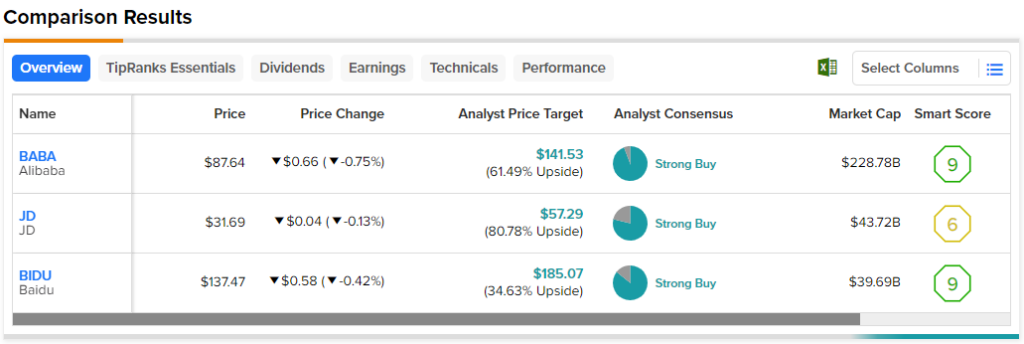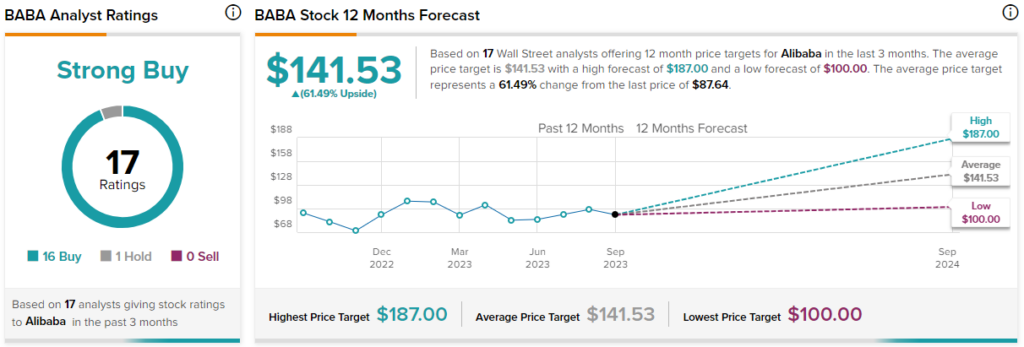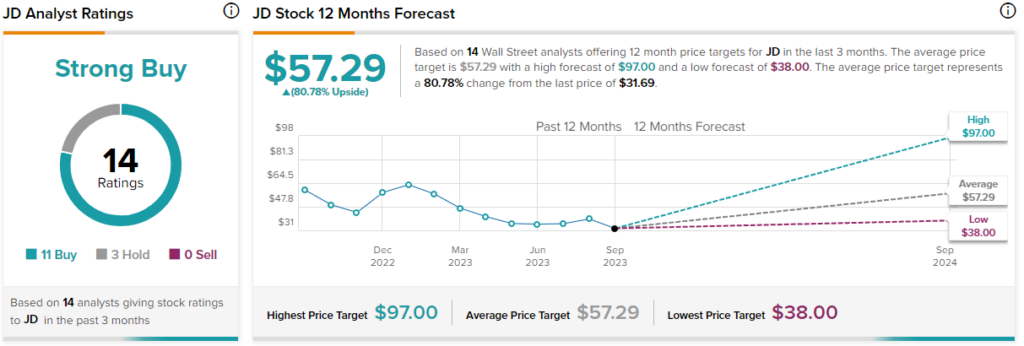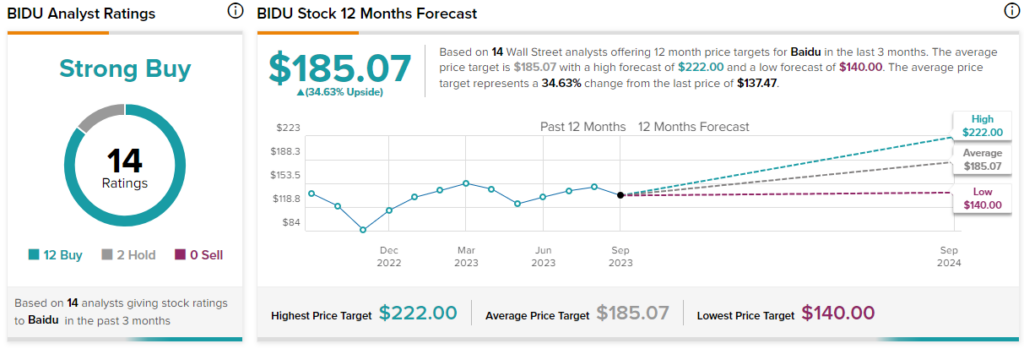Chinese internet stocks (such as BABA, JD, and BIDU) have continued to be up against it this year, not participating in the massive year-to-date rally enjoyed by American tech companies. Undoubtedly, the Chinese economy has stalled out, adding even more pressure to innovative firms that were already feeling the heat. In many ways, even the most dominant Chinese tech companies seem like a lost cause for American investors. However, I am a fan of the deep value that can be found in these stocks.
Until now, even patient investors who’ve held on over the past few years haven’t much to show for their investments. For instance, Alibaba stock is all the way back to where it was back in 2014 at $85-$90. Despite the horrid performance from such names as they hover around multi-year lows, Wall Street remains upbeat on certain Chinese stocks, primarily due to their low valuations. The artificial intelligence (AI) prowess of the Chinese tech firms is also notable.
Therefore, let’s use TipRanks’ Comparison Tool to see where analysts stand on the following trio of AI-savvy Chinese internet stocks.

Alibaba (NASDAQ:BABA)
Alibaba stock cannot catch a break, with the stock now off more than 7% in the past week, putting shares off around 72% from their all-time highs hit back in late 2020. It’s been a painful fall for one of China’s most influential companies. With its CEO Daniel Zhang suddenly stepping down from the cloud, the uncertainties couldn’t be greater as the firm looks to put in a bottom amid a weak Chinese economy.
Though some stimulus from the Chinese government could eventually work its way into Alibaba stock and the rest of the tech basket, investors can’t seem to warm up to the name. How could you with so many question marks and added risks?
Alibaba stock may be much-hated, as it has been since shares peaked three years ago. That said, the value stock may be entering deep-value territory as an increasing number of investors throw in the towel. The stock trades at a 9.3 times forward price-to-earnings multiple, well below the internet retail industry average of 26.2 times. At such a massive discount, I have to stay bullish on the stock.
The real upside could lie in when the Chinese economy starts picking up traction again. Whether it’s a fresh round of stimulus, AI innovations, or something more, it’s hard to imagine things could get any worse for Alibaba as it plays the long game with its “customers-first” approach.
What is the Price Target for BABA Stock?
Alibaba is a Strong Buy, with 16 Buys and one Hold assigned in the past three months. The average BABA stock price target sits at $141.53, implying 61.5% upside potential.

JD.com (NASDAQ:JD)
JD is another Chinese e-tail stock you may have forgotten about amid the recent slump in Chinese stock markets. Like Alibaba, JD is deeply oversold after suffering a more than 70% drop from its peak. Though JD seems to be at the mercy of the Chinese consumer, I still think there’s upside to be had as the firm embraces generative AI, just like many American tech firms are doing right now.
In due time, the consumer tides will turn. In the meantime, JD’s skin in the AI race should be given more attention from value investors. Though it’s been a painful ride, I continue to be bullish on the potential upside to be had in a Chinese economic turnaround.
At writing, shares go for 10.8 times forward price-to-earnings, slightly pricier than Alibaba. With JD recently pulling the curtain on its LLM (large language model) called ChatJD, the firm joins the likes of many FAANG firms, some of which are three times more expensive from a P/E perspective.
Indeed, the market doesn’t seem to care about JD’s ability to innovate on the AI front, given how low of a valuation it has given the company. If you seek AI at a discount, JD certainly stands out as a hidden gem.
What is the Price Target for JD Stock?
JD stock is a Strong Buy, according to analysts, with 11 Buys and three Holds assigned in the past three months. The average JD stock price target of $57.29 entails 80.8% upside potential.

Baidu (NASDAQ:BIDU)
Finally, we have Baidu (the Google of China), which is also making waves in the AI scene, with its Ernie bot topping the App Store list in China. Indeed, Ernie is pretty much a Chinese version of ChatGPT, and Baidu is ready to play by any evolving AI rules laid out by Chinese regulators. Indeed, nobody wants to be on the receiving end of a hefty fine from regulators for skating offside in the realm of AI.
With such a popular AI app, I find it absurd that shares are still well off (more than 55%) their all-time highs. At 14.1 times trailing price-to-earnings, BIDU stock may very well be the AI catch-up trade for the coming year. The many bullish analysts covering the firm seem to think so, and I’m inclined to be bullish as well despite the added risks of investing in Chinese securities.
What is the Price Target for BIDU Stock?
Baidu is another Strong Buy, with 12 Buys and two Holds. The average BIDU stock price target of $185.07 entails 34.6% upside potential.

Conclusion
Chinese internet stocks are not well-liked by investors, but that’s one reason they may be deep in value. Of the trio of names in this piece, analysts expect the most upside (more than 80%) from JD stock.
















